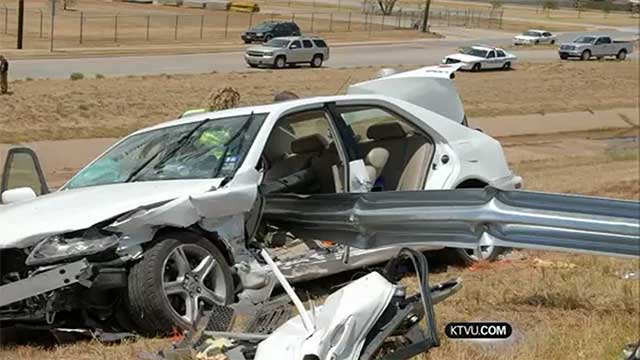6/13/2015

Tuesday’s, $663 million settlement against guardrail manufacturer Trinity industries includes the largest-ever award given to a whistle-blower under the False-Claims Act, a whopping $199 million given to former competitor, Virginian Joshua Harman. Harman sued on behalf of the government claiming that Trinity defrauded taxpayers by failing to notify the Federal Highway Administration of a potentially deadly alteration of its ET-Plus guardrail in 2005. Trinity’s attorneys have already said that they will appeal the penalty given by Texas U.S. District Judge Rodney Gilstrap, who tripled the original $175 million the jury originally awarded the government last October. Gilstrap also added a civil penalty of $8,250 for each of the 16,771 false certifications issued by Trinity. The harsh penalty comes despite recent federal testing in which the guardrails and the controversial end-caps both passed scrutiny. Trinity spokesman, Jeff Eller responded in an e-mail, “The judgment is erroneous and should be reversed in its entirety.”
The sizable dollar amount of the settlement, if the appeal is upheld, could only be the beginning of Trinity’s problems. It is unknown if Harman will actually receive any of the money, as Trinity filed for bankruptcy protection in March in addition to its announcement to appeal the penalty. 9 deaths have been attributed to the guardrails, in which the ends are supposed to act like shock-absorbers but instead splinter, potentially spearing the door and the vehicle’s occupants. Trinity is defending at least 20 lawsuits over the ET-Plus, with more suits likely forthcoming. Trinity shares have fallen over 18 percent since October’s verdict and the company could possibly lose billions in lost sales. The day after the verdict, the Federal Highway Administration (FHWA) announced that they would run series of tests to determine if the ET-Plus qualifies for federal reimbursement of state-run highway construction projects, essentially a necessity for Trinity to keep the ET-Plus viable. The approval might be for naught, however, as over 30 states have already banned the guardrail and Trinity has halted shipments of the ET-Plus in the wake of October’s verdict.
Despite the grim prospects for the ET-Plus, however, Trinity may end up surviving the fray. Construction projects, which include guardrail manufacturing accounts for less than 12 percent of the company’s $4.3 billion revenue, according to the company’s 2014 annual report. The majority of the company’s revenue comes from manufacturing rail cars, roughly $2.8 billion. According the Trinity’s 2011 report, highway division sales were a relatively paltry $377 million in comparison. To complicate matters, however, the ET-Plus guardrail successfully passed all 8 tests in March that the FHWA required after the Texas verdict. This led U.S. prosecutors to launch a probe into the relationship between Trinity executives and the FHWA. As I noted in March, Trinity has been accused of cozying up to lawmakers, as well giving a $50,000 campaign donation to several state-level attorney generals. At the same time, Harman has been accused of being a disgruntled competitor with selfish motives. While October’s verdict vindicated Harman’s 3 ½ year quest to some degree, it should be noted that Harman’s award was so large because the federal government could have opted-in the case, helping to boost its credibility, but chose not to. It is difficult to say if the government did not believe the case had merit, or if the motives were cloudier. If anything, it appears that federal regulators are giving mixed-signals about the ET-Plus; a much kinder stance than many states and Judge Gilstrap has taken. The various factors at play may lead Trinity to scrap the guardrail business, extricating itself from the situation altogether in order to save the company in the long run, possibly to the relief of drivers nationwide.
Sources:
Bloomberg Business – Patrick G. Lee
New York Times – Aaron M. Kessler and Danielle Ivory
Washington Post – Ashley Halsey III


Join the conversation!